Parents search for ‘hero’ to save life of 2-year-old son
A 2-year-old boy who beat the odds by surviving a very rare birth defect is now in search of a "hero" kidney donor to save his life again.
"They are out there living their life right now, and they are his perfect match, and one day ... they're going to come forward and donate their kidney to Conrad," Austyn Evans, 2-year-old Conrad's mom, told "Good Morning America." "And it's just such an amazing thing to think that my child's hero is walking around in the world."
Conrad, whom Evans shares with her husband Branden Williams, was born with a rare birth defect known as lower urinary tract obstruction, or LUTO, which impacts his kidneys and bladder. The condition, which affects only 1 in every 5,000 to 7,0000 births, prevents the passage of urine, which can lead to kidney damage, and can impair fetal lung development, according to the Children's Hospital of Philadelphia.
In Conrad's case, the drainage portion of his kidney was not developed correctly at birth, which resulted in end-stage kidney disease, which is a nearly one-in-a-million condition in infants, according to Dr. Joshua Zaritsky, a pediatric nephrologist at Studer Family Children's Hospital at Ascension Sacred Heart in Pensacola, Florida, and the doctor currently overseeing Conrad's care.
Evans said she learned of her son's rare birth defect while she was pregnant. She and her husband moved from Florida to Houston when Evans was in her third trimester so they could receive specialty care at Texas Children's Hospital.
Conrad spent the first six months of his life in the neonatal intensive care unit, or NICU, at Texas Children's Hospital, where he was placed on a ventilator immediately after birth and subsequently spent hours each day connected to a state-of-the-art dialysis machine specially designed for infants.
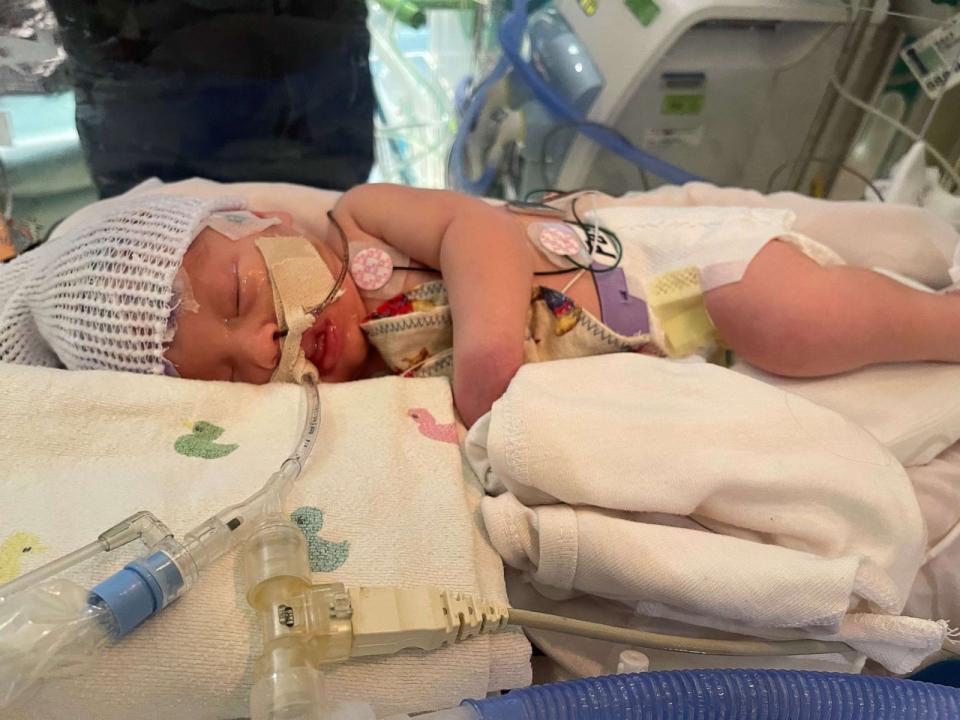
When he was discharged from the NICU last June, Evans and her husband became the primary caregivers for Conrad, connecting him to a dialysis machine at home each night and maintaining the gastrostomy tube, or G-tube, that gives him medication and nutrition directly to his stomach.
"Conrad is on dialysis eight hours every single night, and in addition to that, we do his blood pressure and we do his weight and his temperature twice daily," Evans said. "He takes over 13 medications because dialysis doesn't work like a kidney works ... we have to give him supplemental medication to keep him well and growing and thriving."
Due to the catheter used for dialysis, Conrad cannot take a bath or get wet, and has to stay especially clean, meaning he can't play outside and get messy like a typical 2-year-old, according to Evans.
"It's very hard to tell a toddler, 'No,'" Evans said of the limitations her son faces. "I would say that his childhood is continually being robbed from him."
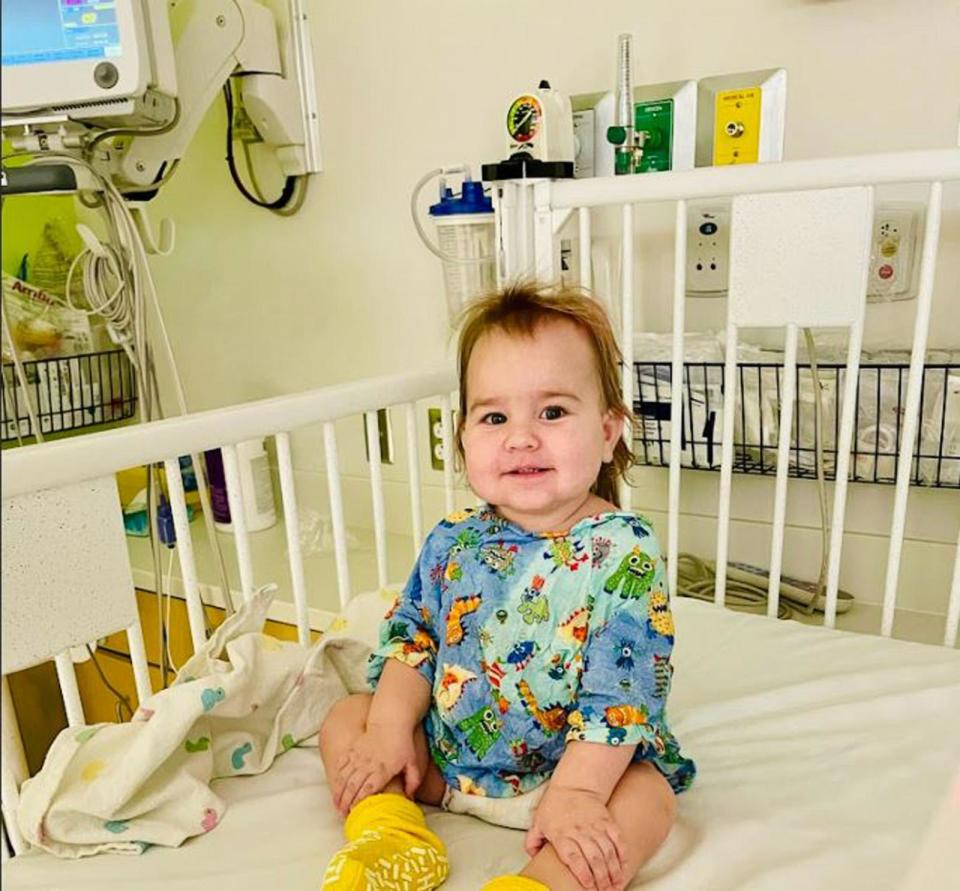
Since his birth, doctors have said that Conrad would be in need of a kidney transplant in order to stay alive, according to Evans. She and her husband and other family members were not matches for Conrad, so for more than a year, the family has searched for the right stranger to donate a kidney to Conrad.
"The need for Conrad to get a kidney is pretty immediate," Evans said. "We continue to see his little body give us signs that dialysis isn’t giving the best filtration. His growth and development are two of the things that we see a lot of suffering in while he's on dialysis."
MORE: Woman finds kidney donor through TikTok
Conrad, who turned 2 in December, is in need of a kidney from an adult living donor both because a living donor's kidney will provide more longevity, and because a living donor allows for more time for planning for the transplant, according to Zaritsky.
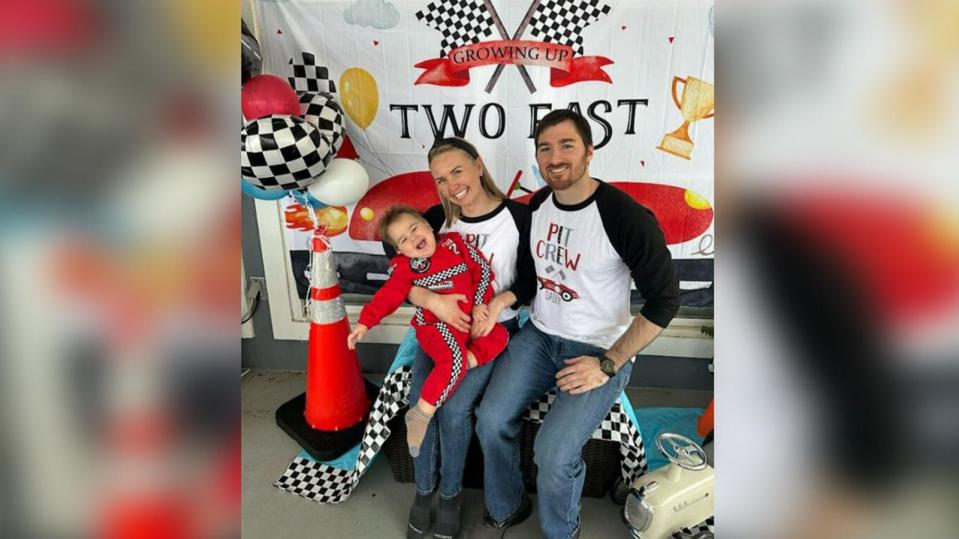
Research shows that a kidney from a living donor will last five to 10 years longer than a kidney from a deceased donor. In addition, the waiting time for an organ for a deceased donor can be multiple years, time that a child in Conrad's situation does not have.
"For the most part, the majority of kids who receive an organ get an adult organ," Zaritsky told "GMA," noting that with a kidney transplant, its easier to work with an adult kidney than a pediatric kidney. "If you look at the donor list, pediatric patients are sort of given preference for the highest-quality kidneys because we as a society have decided that they, children, are going to get the most bang for the buck for a kidney transplant and we're going to try to prioritize them for the best kidneys on the list."
A kidney transplant surgery typically takes three to four hours and involves two operations, one to remove the kidney from the donor and another to place the donated kidney in the recipient. Both the kidney donor and the recipient typically stay in the hospital for "several days" following the transplant, according to the National Institutes of Health.
Zaritsky said that for a young patient like Conrad, his health would improve immediately after transplant. In addition to no longer needing to be on dialysis, Zaritsky said a kidney transplant would help improve everything from Conrad's eyes to his ability to grow and speak and be independent.
"Imagine a donation where you're potentially increasing that person's lifespan," he said. "You're doubling that person's lifespan and, in some cases, tripling it."
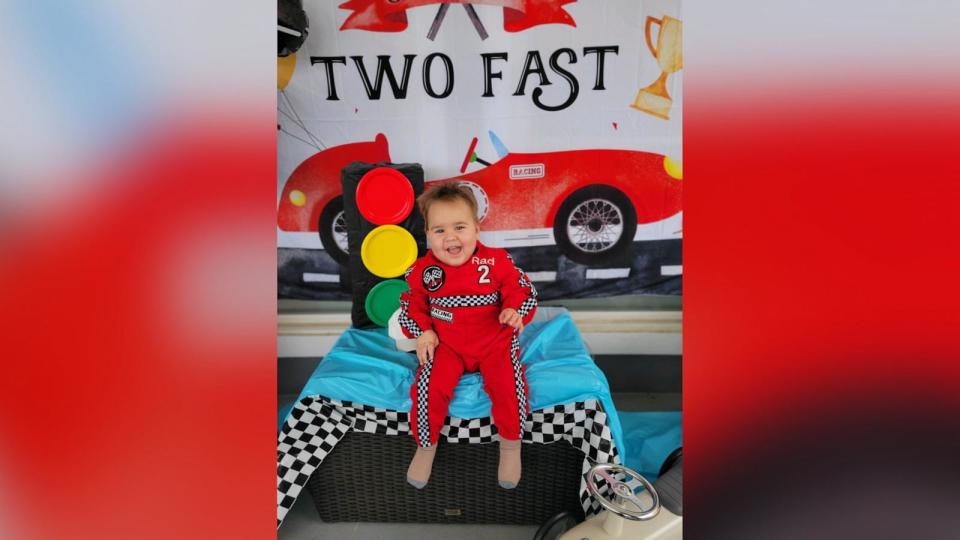
Evans said she hopes that sharing her family's story helps raise awareness of not only Conrad's need for a kidney donor, but of the larger need for organ donors across the United States.
Currently, over 103,000 children and adults are on the national transplant waiting list, and 17 people die each day waiting for an organ donation, according to the U.S. Health and Resources Administration.
According to Evans, one of the most challenging parts of searching for a donor for Conrad has been educating people that he, like many kids on the transplant waiting list, needs an adult kidney.
"Throughout this search, I can't tell you the number of people who have reached out and said, 'I wish I could donate. I'm an adult, though. My kidney will be too big,'" she said. "There's just not this realization that an adult donor is exactly what Conrad needs in order to [have] a kidney transplant."
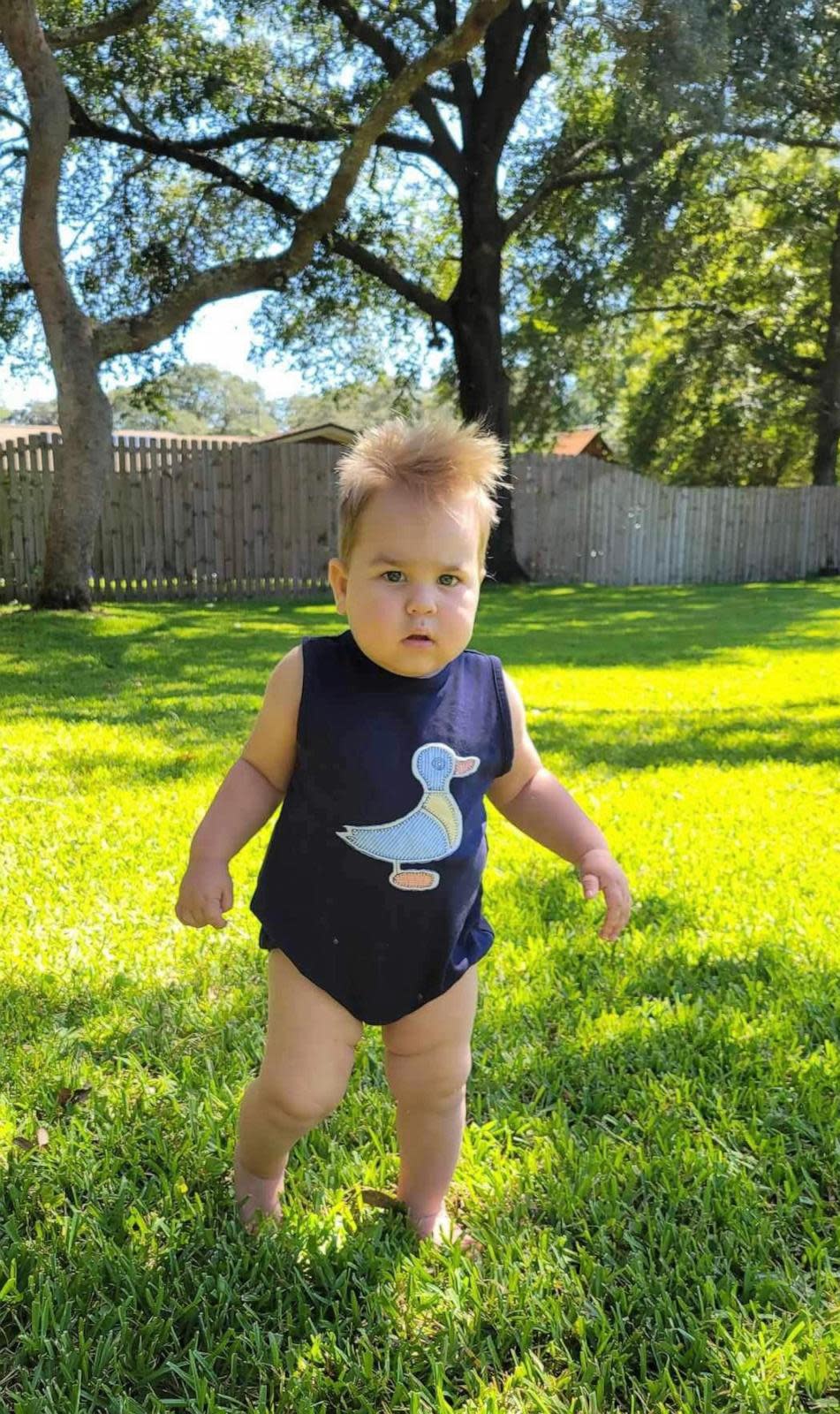
Evans continued, "The best kidney that we can get Conrad right now sets him up for a long and full life that's not full of hospital admissions consistently, or searching for a donor multiple times."
Shortly after Conrad's birth, Evans started a Facebook page to share information on how to apply to be a donor because she said she wants his story shared far and wide.
"You never know where Conrad's hero is," Evans said. "The more people that this can reach, the greater chance we have of saving Conrad."
Parents search for ‘hero’ to save life of 2-year-old son originally appeared on goodmorningamerica.com

